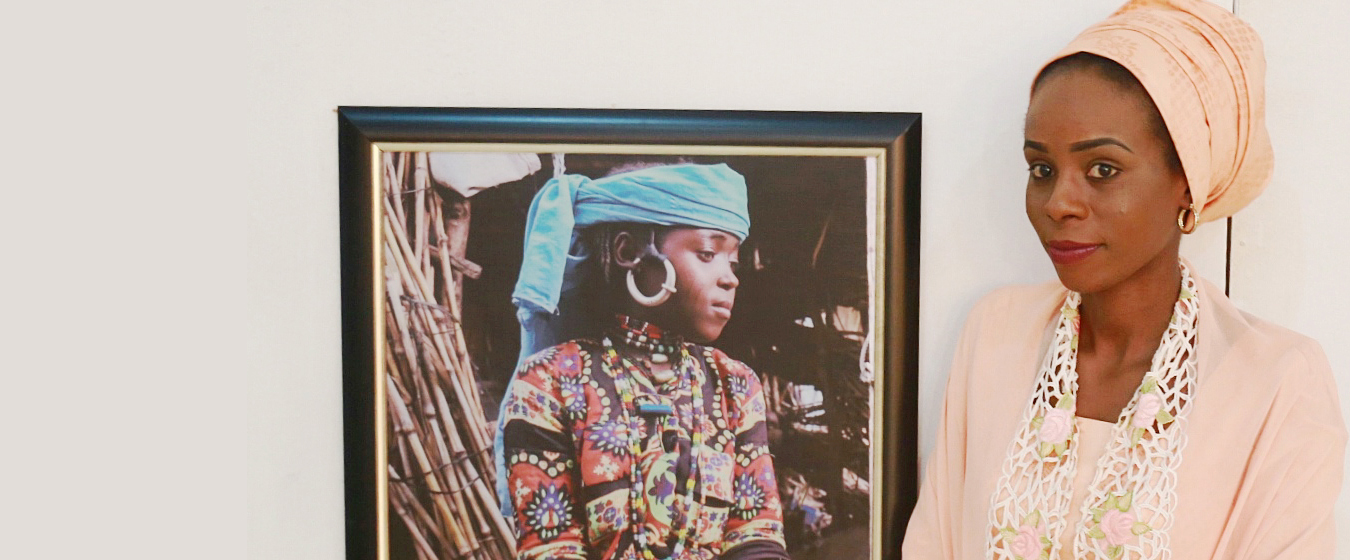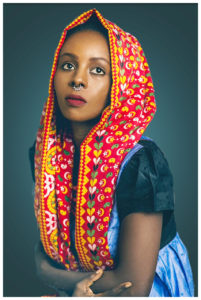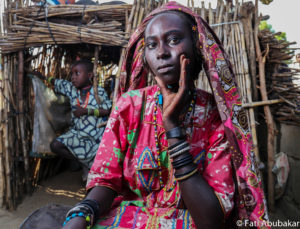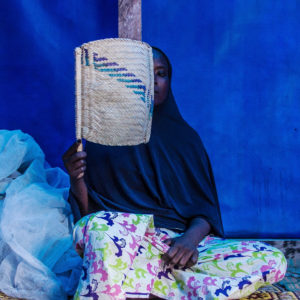
Fati Abubakar
A documentary photographer, photojournalist, and public health humanitarian health worker from Borno State Nigeria

© Fati Abubakar
Her work is just amazing and really inspiring, it was an honor speaking to her on one sided stories and its danger and impact on society.
Abubakar specializes in documenting cities and towns, highlighting both the positives and negatives of each location. She focuses on health perspectives, using photography as a medium to highlight the problems at community level.
She also has an interest in documenting cultures, conflict, urban poverty, rural development, and humanitarian issues. She has a special interest in counter narratives for underrepresented communities. She has embarked on a personal project to showcase her hometown of Borno State, Nigeria at the time of Boko haram entitled “Bits of Borno”.
The project has gained critical acclaim and has been published in international media publications including the New York Times, BBC, Reuters, CNN, Voice of America, Newsweek Europe, and Nigerian newspapers such as This Day and The Blueprint. She has been commissioned to work with agencies including UNICEF, International Alert, and others.

© Fati Abubakar
“Documentation of African stories is very important. We need to capture African present-day realities,” she says. “We are losing our cultures to modernity. Hence, we also have to preserve our heritage. Millennials have been introduced to new forms of culture and those are slowly erasing old traditions. And that is disturbing.”
Her aim is to document and preserve social practices, festive events, daily tasks, and knowledge. “My way of preservation is by using photography. I document everyday stories of my community using imagery. I photograph everything: from the impact of the insurgency on our town to the resilience of our people, to the tribes within my community. I feel that with visual storytelling, people learn more about our cultures and traditions at the same time, archiving our present day. Years from now, generations will want to know what happened.”
There are several reasons that motivate her. “One, being that the insurgency has been portrayed from mostly one angle, which is devastation and death. They [the media] don’t really see outside of that, which is really unfortunate. And for the rest of your life, you will be labelled as something that came out of there, something that is depressed.”

© Fati Abubakar
“I was doing a dissertation on the impact of psychological health of refugees and I discovered that despite the fact that there is a crisis going on, there is also resilience and joy and love and happiness. We are grouped as all traumatized. That was what I saw in Maiduguri. Also, everyone seemed to have a page where they document life in their city. No one was doing that for us [in Borno State]. I felt our stories had to be told.
Everyone was focused on the IDP issue and I wanted to do something different. Not really happy stories per se, but everyday life. I was tired of the trauma narrative so I diverted from it. I started with Nostalgia. I was photographing architecture because I think we are losing our buildings. Then, news came in with figures: 10,000 dead, 5,000–they don’t give accounts of what these victims left behind, so my interest was the impact of the numbers that have died on the numbers that have been left behind,” she explains.
For example, George Soros of Open Society Foundations had created a billion dollar fund that gives grants to artists. In Africa, we have billionaires but there are no foundations for artists. Museums in other parts of the world are so beautifully adorned with art, but we don’t see that happening around Africa. It is truly tragic.”
